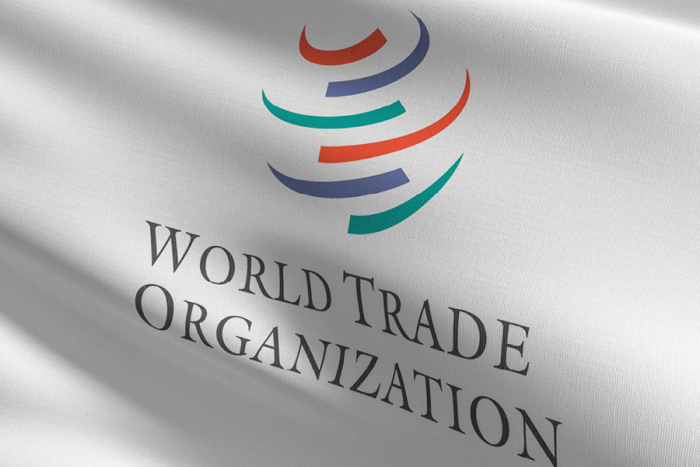 Earlier this month, both the World Trade Organization (WTO) and the International Monetary Fund (IMF) issued forecasts of slowing growth in international trade.
Earlier this month, both the World Trade Organization (WTO) and the International Monetary Fund (IMF) issued forecasts of slowing growth in international trade.
On October 5 the WTO lowered its trade growth forecast for 2023 due to a continued slump in global manufacturing. A few days later, the IMF followed suit, predicting an economic slowdown in the next year.
The WTO is predicting world merchandise trade to grow by 0.8% this year, a decrease from 1.7% in April, with 2024 growth remaining at 3.3%.
The WTO said the trade slowdown appears to be broad-based amidst persistent inflation, continued tight monetary policy, the war in Ukraine, and a strained Chinese property market. In addition, the WTO is beginning to see evidence of supply chain fragmentation that could threaten the positive outlook for 2024.
WTO Director General Ngozi Okonjo-Iweala called the projected slowdown in trade for 2023 “cause for concern, because of the adverse implications for the living standards of people around the world.”
IMF Projections
The IMF similarly is projecting that economic growth will slow to 3% this year, down from 3.5% in 2022, and to 2.9% in 2024, which is a 0.1-point downgrade from their 2024 prediction in July of this year.
The IMF sees inflation decelerating to 5.9% in 2023, down from 9.2% in 2022, and predicts 4.8% for 2024 with most countries returning inflation to target in 2025. The IMF sees a soft landing as a likely scenario for the global economy and labor markets, although the slowdown has been more pronounced for advanced economies.
The IMF, similar to the WTO, sees geoeconomic fragmentation as posing a risk to the global economy which could have macroeconomic consequences, including for the climate transition.
The IMF also warns that the Chinese real estate crisis poses a significant risk for the global economy due to diminished consumer confidence and investment in the country.
Multilateral cooperation can help ensure better growth outcomes, according to the IMF report, which recommends that countries avoid policies that contravene WTO rules and distort international commerce. The report calls for all countries to prevent geoeconomic fragmentation that impedes progress toward a shared prosperity.
Conflict Risks
Recent events in the Middle East also may add new risks to global economic growth. On October 12, WTO Director General Okonjo-Iweala warned that the Israel-Hamas conflict could have a “really big impact” on already-weak global trade flows if it were to widen throughout the region.

